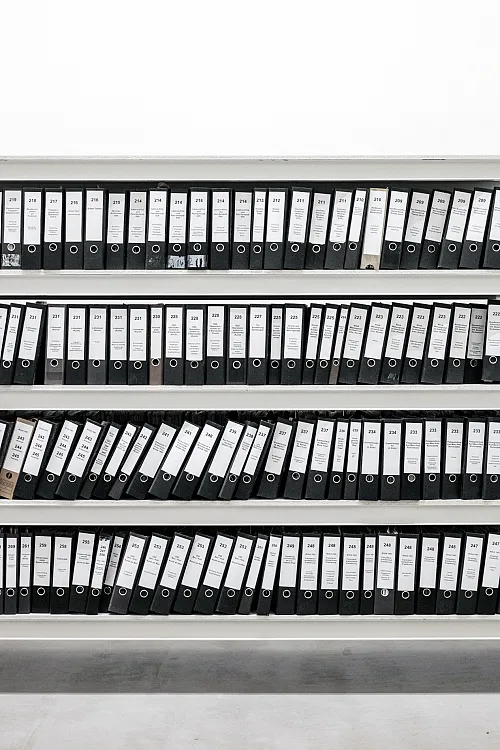01.03.2013
European Commission applies a € 1.47 billion cartel fine in the cathode ray tubes market
The European Commission, in case COMP 39.3471, has recently sanctioned LG Electronics, Philips, Samsung SDI, Chungwa, Panasonic, Toshiba, MTPD (a Panasonic subsidiary) and Technicolor a total of € 1,470,515,000.00 for participating, between 1996 and 2006, in either one or both of two distinct cartels which were active worldwide in the sector of cathode ray tubes. One cartel operated in the colour picture ray tubes used for televisions and the other anti-competitive alliance was active in the colour display ray tubes used in computer monitors. According to the European Commission, cathode ray tubes (CRT) account for 50% to 70% of the total price of a screen.
For almost ten years these companies carried out, in accordance with the European Commission findings, “all the worst kinds of anti-competitive behaviour that are strictly forbidden to companies doing business in Europe”, including price fixing, markets sharing, customer allocation, capacity and output coordination and exchanges of commercial sensitive information. The Chungwa company received full immunity from the applicable fines under the European Commission 2006 Leniency Notice (see OJ C 298, 8.12.2006) for the two cartels, as it was first to reveal their existence to the European Commission services.
Other involved companies also gained fine reductions taking into account their active cooperation in the investigation under the Commission’s leniency programme.
The Commission started its investigation with unannounced inspections in November 2007 at the premises of manufacturers of cathode ray tubes. A Statement of Objections was adopted in November 2009, so that companies could reply to the Statement of Objections, setting out all facts known to them, which they deem relevant to their defence against the objections raised by the Commission. A supplementary Statement of Objections concerning corporate liability was adopted by the Commission in June 2012 against two of the companies.
The two CRT cartels are among the most organized that the Commission has investigated. The cartelists held several top management meetings for the design of the orientations for the two cartels and the preparation and implementation were carried out through lower level meetings. Commission states that these meetings usually started with a review of demand, production, sales and capacity in the main sales areas, including Europe, and ended with the discussion of prices, including for individual customers, which resulted in a direct impact on customers in the European Economic Area, ultimately harming final customers.
The cartelists meetings were held in several locations in various countries and cities, including Taiwan, South Korea, Japan, Malaysia, Indonesia, Thailand, Hong-Kong, Amsterdam, Budapest, Glasgow, Paris and Rome.
Thus, based on the documentation gathered during the investigation, the Commission considers that the involved companies were well aware they were infringing antitrust law (Article 101 of the Treaty on the Functioning of the European Union) and the participants were therefore taking precautions to avoid being in possession of anticompetitive documents. “Producers need to avoid price competition through controlling their production capacity”, “Everybody is requested to keep it as secret as it would be serious damage if it is open to customers or the European Commission”, or “Please dispose the document after reading it”, were part of the expressions employed in several documents recording the cartels discussions accessed by the Commission during the investigation.
In respect of the fines applied to the Companies, these were set in accordance with the Commission’s 2006 Guidelines on fines, therefore taking into account (i) the wrongdoers sales of the products concerned in the European Economic Area, (ii) the very serious nature of the infringement, (iii) its geographic dimension scope, (iv) its de facto implementation, and (v) its duration.
If Chungwa had not received full immunity, the applicable fines would have been €8,385,000.00 for the TV tubes cartel and €8,594,000.00 for the computer monitor tubes cartel. Other companies, such as Samsung SDI, Philips and Technicolor saw their fines reduced from 10 % to 40% for their cooperation under the Commission’s leniency programme, such reductions also reflect the time of their cooperation and the extent to which the evidence they disclosed assisted the Commission to prove the cartelists conducts.
The Commission imposed the following fines: (i) Samsung SDI, €150,842,000.00; (ii) Philips, €313,356,000.00; (iii) LG Electronics, €295,597,000.00; (iv) Philips and LG Electronics, jointly €391,940,000.00; (v) Technicolor, €38,631,000.00; (v) Panasonic, € 157,478,000.00; (vi) Toshiba, €28,048,000.00; (vii) Panasonic, Toshiba and MTPD, jointly € 86,738,000.00; and (viii) Panasonic and MTPD, jointly € 7,885,000.00.
Prior to this decision, which imposed a fine in the total amount of €1.47 billion, the Commission’s biggest antitrust penalty had been a 1.38 billion euro fine imposed on the participants in the car glass cartel in 2008 – see case COMP 39.125 “Carglass”2, with Decision of 12 November 2008. In accordance with the latest developments, Panasonic already made a statement that it “will seek a fair judgment”3, thus opening a door to a judicial review of the Commission’s decision before the European Union General Court.

_______________________
1 See IP/12/1317, dated 05.12.2012.
2 Information available at http://ec.europa.eu/competition/cartels/cases/cases.html.
3 See Reuters “Panasonic to appeal EU ruling on cathode-ray tube cartel”, at http://www.reuters.com/article/2012/12/21/panasonic-cartel-appeal-idUSL4N09V29X20121221.


